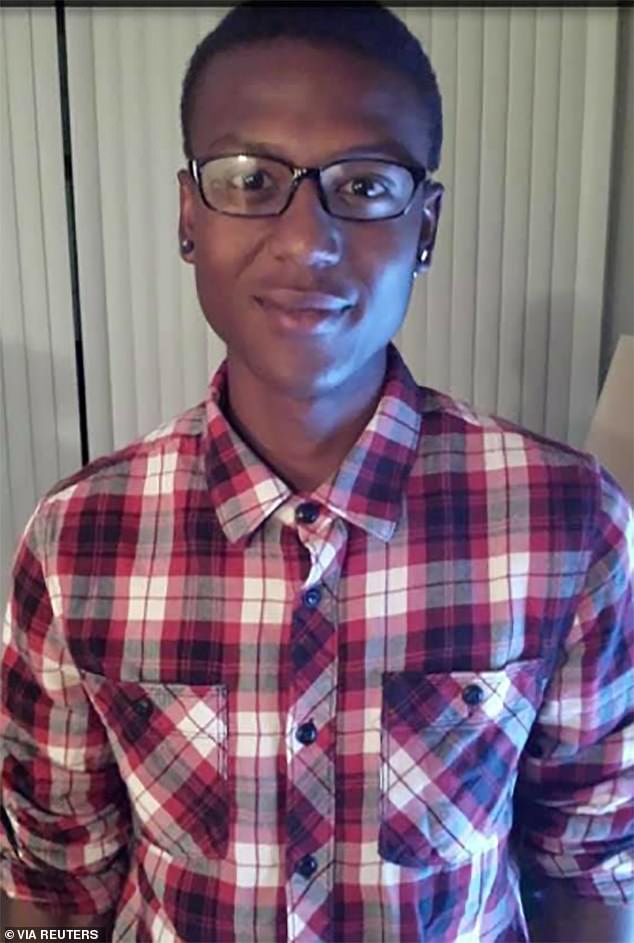A Colorado cop who held Elijah McClain by the neck before receiving a lethal dose of ketamine and dying is found NOT GUILTY by a jury
A Colorado court has found Aurora police officer Nathan Woodyard not guilty of recklessly contributing to the death of Elijah McClain, an unarmed Black man who died after an interaction with police in 2019.
The jury deliberated a day before announcing the verdict, apparently buying Woodyard’s own defense of himself that he did what he was trained to do in the encounter with McClain.
Prosecutors argued that Woodyard placed the 23-year-old in a carotid artery restraint and failed to provide proper follow-up care as the young man, restrained, lay on the ground, unable to breathe.
A carotid hold is a police maneuver that cuts off blood flow to the brain and causes brief unconsciousness.
Police Officer Nathan Woodyard became the second officer acquitted for his role in the 2019 death of Elijah McClain

Elijah McClain was fatally injured when he was arrested in Aurora, Colorado in August 2019. He died days after the encounter with police
Woodyard said under oath that he trusted officers and paramedics to care for McClain while he (the officer) controlled himself after the encounter.
He is the second officer in several weeks to be acquitted following a trial over the August 2019 death.
One officer, Randy Roedema, was convicted in October of negligent homicide in McClain’s death.
The death of the introverted young man walking home from work the night he was stopped by police led to statewide police reforms that eventually led to a carotid ban.
Over the course of a three-week trial, prosecutors failed to prove that Woodyard was trained to handle McClain differently than he did that summer evening.
They argued that Woodyard, who had been on the force for about two years at the time, ignored Aurora Police Department policy that directs officers to approach members of the public with empathy. Moreover, he failed to de-escalate the situation.
State’s Attorney Jason Slothouber said of Woodyard, “Four years later, he has empathy.”
“But the version of the defendant that Elijah McClain was given is the one that caused his death by ignoring his training, by ignoring Elijah’s claims and pleas for help, that he can’t breathe, and that’s exactly the story he was meant to avoid . That’s why he’s guilty.’
